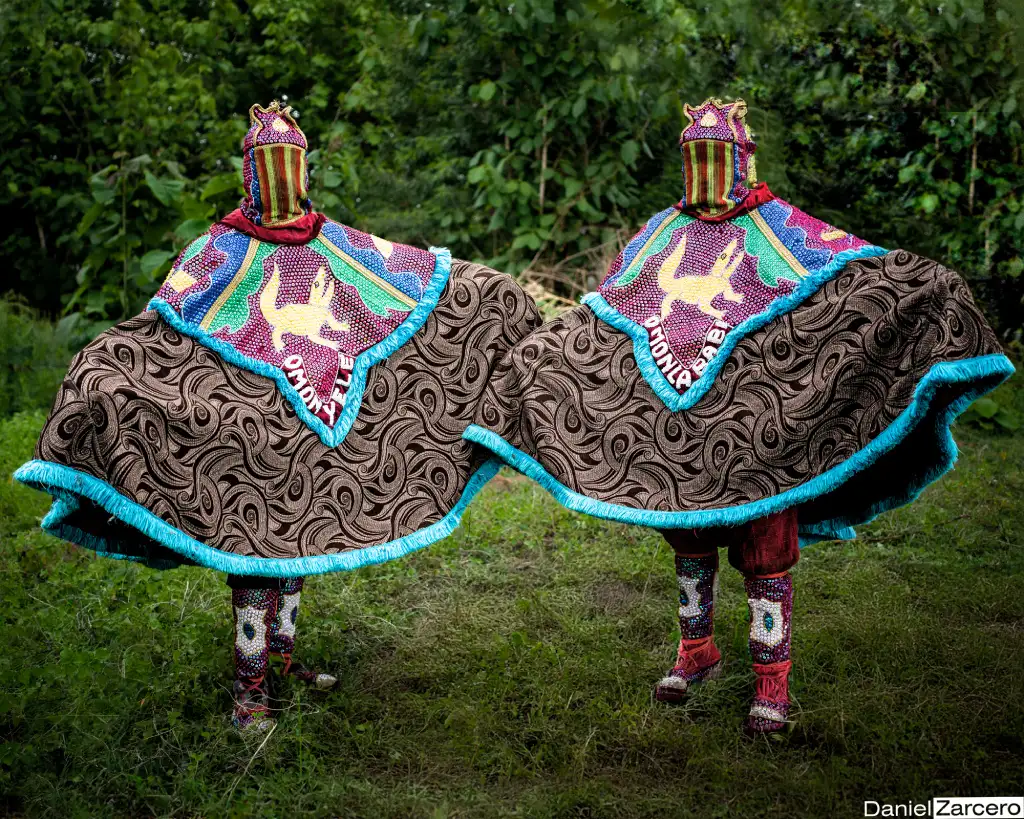Organised by the Nzema community, it is a festival full of dances and ceremonies. We include it in a journey through some of the country’s best-known dances: the Goli, the Zaoli, the Wading Bird, and also the initiation ritual of the ‘snake girls’. All this in a spectacular and varied architectural context, with mud mosques and colonial towns. Côte d’Ivoire is one of the best places to see masked dances, and doing so during Abissa is a special opportunity.
Festivals

Festivals in West Africa are not simply folkloric celebrations or traditions, nor are they simply aesthetic events.
They are not just ‘parties’ or ‘concerts’ either. They have a strong ritual and spiritual value. They reflect a culture and a way of understanding the world, especially from animist religions, which are closely linked to people and nature. That is why they are so important, both individually and collectively. Usually accompanied by music and dance, festivals are key to the social life of many villages and to the way in which their members understand themselves. They help to keep traditions and ancient values alive, mark important moments in the calendar or accompany rituals of passage. They are active ceremonies, which are lived on a daily basis and are part of the most personal part of each African community. They are also one of the cultural highlights of each ethnic group or nation.

Most important festivals in the Gulf of Guinea
Loana Travel, as specialists in ethnographic travel, takes you to experience some of the most important festivals in the Gulf of Guinea. Thanks to our contacts and our knowledge of local cultures and languages, you will be able to attend unique events, understand what they really mean and get to know the countries you are visiting better. We usually travel in groups, but we can also organise tailor-made trips. Here are some of the most outstanding festivals in Africa:
Abissa Festival
Côte d'Ivoire
It is one of the most important rituals of passage in the Gulf of Guinea. This festival is very important because it marks the passage from childhood to adulthood for many young people in the country. Dances and songs accompany this key moment symbolising emancipation and entry into society. Loana Travel takes you to experience it up close, in a journey that also covers other parts of the country, from the Ashanti tradition in Kumasi to the colonial buildings of the coast, declared World Heritage by Unesco.
Dipo Festival
Ghana
It is held during some key dates in the Islamic calendar, as this is a Muslim town. In it, the emirs and the main authorities and their courtiers parade on horseback in traditional costumes and percussion music. It is an impressive event, and thanks to our contacts we have exclusive access to it. The trip also includes a visit to the south of the country, the Yoruba area: an exciting and welcoming region, demystifying the country’s dangerous image.
Durbar Festival
Nigeria
A celebration perhaps less well known than the international voodoo festival, but much more intimate. Held in mid-August in the centre of the country, it consists of a series of rituals to pray for good harvests. We rounded off the visit by attending the horse festival at Parakou, a spectacular equine display which, like all events in the region, is steeped in spirituality.
Harvest Festival
Savalou (Benin)
Mid-August
Benin celebrates the most important festival of this animist religion every 10 January. Dozens of dances take place on this day, including one dedicated to Hevioso, the Yoruba god of thunder and rain, in which participants enter into a trance, and that of the Zangbeto, “the guardian of the night”, who spins endlessly as he moves forward. Shamans and priests are also consulted in the sacred forest of Kpassé in Ouidah, the coastal town where the event is held. The trip also includes a visit to Porto Novo, the country’s capital, to see the egungunes, a Yoruba dance that commemorates ancestors. This voodoo tour continues to other parts of Benin and Togo, visiting some of the main ethnic groups. This is a classic Loana Travel tour.
International voodoo festival
Benin
10th January
Although less well known than in Benin, the voodoo festival in Togo is just as exciting. In this country, where fetish markets and animist rituals are still very much alive, this event is held every September in Glidji, near the capital, Lomé. It marks the beginning of the new year and its most anticipated moment comes with the unveiling of a sacred stone, the colour of which predicts the year’s fortune. Blue indicates abundant harvests, red heralds war, black signals famine or floods, and white symbolises luck.
Voodoo Festival
Glidji (Togo)
September
